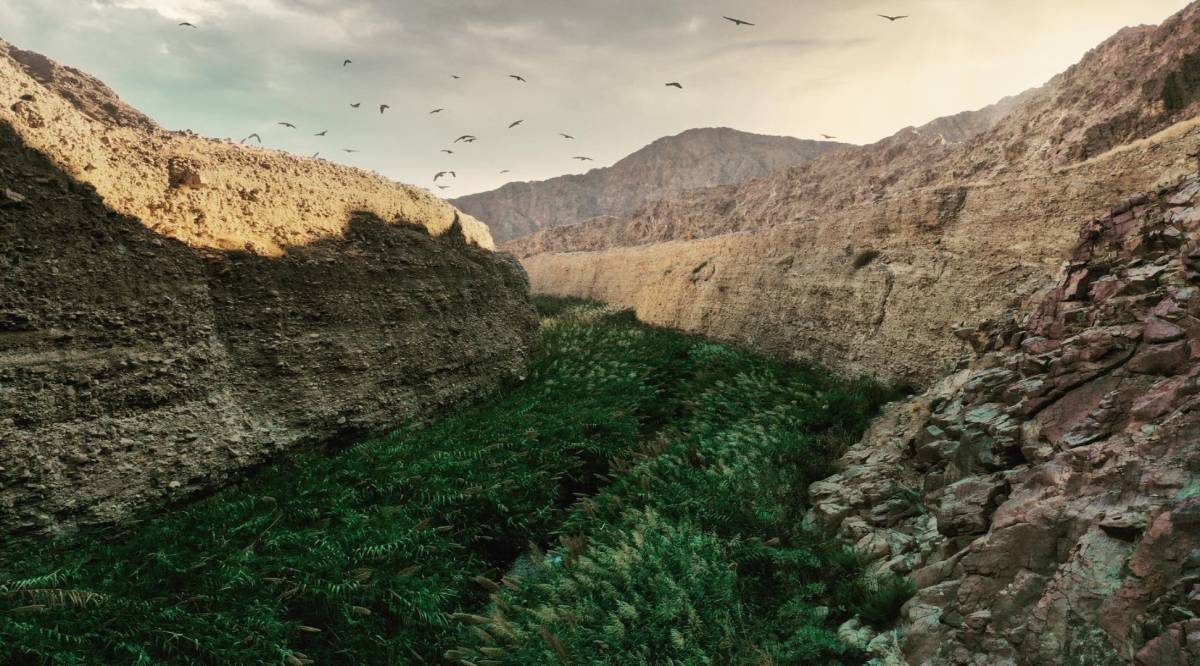Fujairah's new hiking trails: Your guide to routes, safety tips, and rules
Explore picturesque landscapes with essential precautions for a safe and enjoyable hike

Fujairah’s hiking landscape has reached new heights with the addition of four fresh trails, bringing the emirate’s total to an impressive 15 approved routes.
These trails, each offering unique challenges and stunning views, are part of an ambitious effort to establish Fujairah as a go-to destination for nature enthusiasts in the United Arab Emirates (UAE). With another trail on the way, hikers have more reasons than ever to lace up their boots and explore the emirate’s diverse terrain this winter.
The newly launched trails – Ihfarah Trail, Al Taiba Trail, Al Fqait Trail, and Wadi Al Milh Trail – add to a network that caters to both casual walkers and seasoned adventurers. From historical landmarks to verdant valleys, these paths are designed to showcase the natural and cultural beauty of Fujairah, all while accommodating varying skill levels.
How to access Fujairah's new trails
Planning your journey is crucial for a successful hiking experience. Here’s how you can reach each of the new trails:
Ihfarah Trail: Located near the Hajar Mountains, this trail is accessible via Sheikh Mohammed bin Zayed Road (E311) or Emirates Road (E611). The drive from Dubai takes about 1.5 to 2 hours. Ensure your GPS is updated for precise directions.
Al Taiba Trail: Begin your journey via Emirates Road and Khor Fakkan Road, exiting onto Dibba Masafi Road (E89). Head towards the Flag Fort in Al Taiba village, where the hike starts.
Al Fqait Trail: Situated near Al Fqait Beach, this trail offers a coastal backdrop. Drive along Sheikh Mohammed bin Zayed Road or Emirates Road, following signs to Al Aqah or Dibba.
Wadi Al Milh Trail: Located a few kilometres from the Qfair Trail, this route can be reached via Khor Fakkan Road and Al Bayda Road.
Safety measures
To ensure the safety and enjoyment of hikers, Fujairah has implemented advanced monitoring and support systems:
- Smart Tracking System: Hikers are monitored from entry to exit, providing real-time location tracking.
- Trail Inspectors: Experts stationed at trailheads offer guidance and enforce environmental rules.
- Facilities: Trails are equipped with directional signage, illuminated markers, rest areas, parking, and waste bins.
- Community Volunteers: Twenty-two trained volunteers from local mountainous regions assist in search-and-rescue operations, complementing Civil Defence efforts.
Essential tips for hikers
Preparation is key to a safe and enjoyable hike. Here are essential tips to consider before hitting the trails:
- Know Your Limits: Assess your physical fitness, altitude tolerance, and trail difficulty.
- Gear Up: Wear climbing shoes with ankle support for stability and protection. Carry water, snacks, a jacket, and a fully charged mobile phone.
- First Aid Essentials: Bring a basic first aid kit, including bandages, pain relievers, and any personal medication.
- Longer Treks: For extended hikes, pack water purification tablets and trekking poles. Poles are especially helpful for knee protection during descents.
Avoid these common hazards
Stay vigilant to ensure a smooth experience:
- Wildlife and Environment: Be cautious of falling rocks in goat-populated areas, as well as snakes and scorpions.
- Group Safety: Do not stray from your group or sit in precarious areas.
- Littering: Keep the trails clean to preserve their natural beauty.
Hiking rules to remember
Adhering to Fujairah’s hiking regulations is vital for safety and environmental conservation:
- Follow Designated Paths: Stick to marked trails to avoid accidents.
- Respect Nature: Do not disturb wildlife or remove natural objects.
- Plan Ahead: Check weather conditions, trail difficulty, and ensure you have necessary permits.
- Communicate: Inform someone about your route and expected return time.
Last weekend alone, over 1,500 visitors explored Fujairah’s trails, highlighting the popularity of outdoor activities during winter.